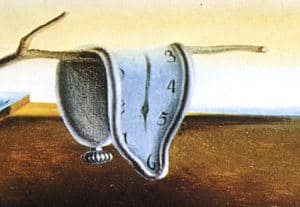
Salvador Dali clock
What year is it? It’s 2019, obviously. An easy question. Last year was 2018. Next year will be 2020. We are confident that a century ago it was 1919, and in 1,000 years it will be 3019, if there is anyone left to name it. All of us are fluent with these years; we, and most of the world, use them without thinking. They are ubiquitous. As a child I used to line up my pennies by year of minting, and now I carefully note dates of publication in my scholarly articles.
Now, imagine inhabiting a world without such a numbered timeline for ordering current events, memories and future hopes. For from earliest recorded history right up to the years after Alexander the Great’s conquests in the late 4th century BCE, historical time – the public and annual marking of the passage of years – could be measured only in three ways: by unique events, by annual offices, or by royal lifecycles.
In ancient Mesopotamia, years could be designated by an outstanding event of […]











Lost in time is this author, injecting apocolypses only in the plural with no relation to the turning of the seasons, the way farmers must percieve in order to harvest food. What is the plural of absolute end? This article, in my opinion is more a comment on common academic parlance outstipping its own logic, using jargon as a dodge from the need to analyse assumptions.
But then, that is why I have avoided academia. Not thinking, mind you. Does cyclic time preclude progressive time? nope. nor vice versa. Do historians get confused? Roger.
Sumer (Iraq) had a thousand year history befor this bit of western transcription hit the page. The work of michael-hudson (dot) com bears upon this tangentially. He looks
at the scripture and points out how “And forgive them their debts” ( not trespasses) was the conservative position in the ancient land for a millenium before Daniel’s transciption was written.
The world is so much larger than western civ. today. So many folks, statesmen among them, think only in terms of western empire. (and do so from withing serial time) Alas.